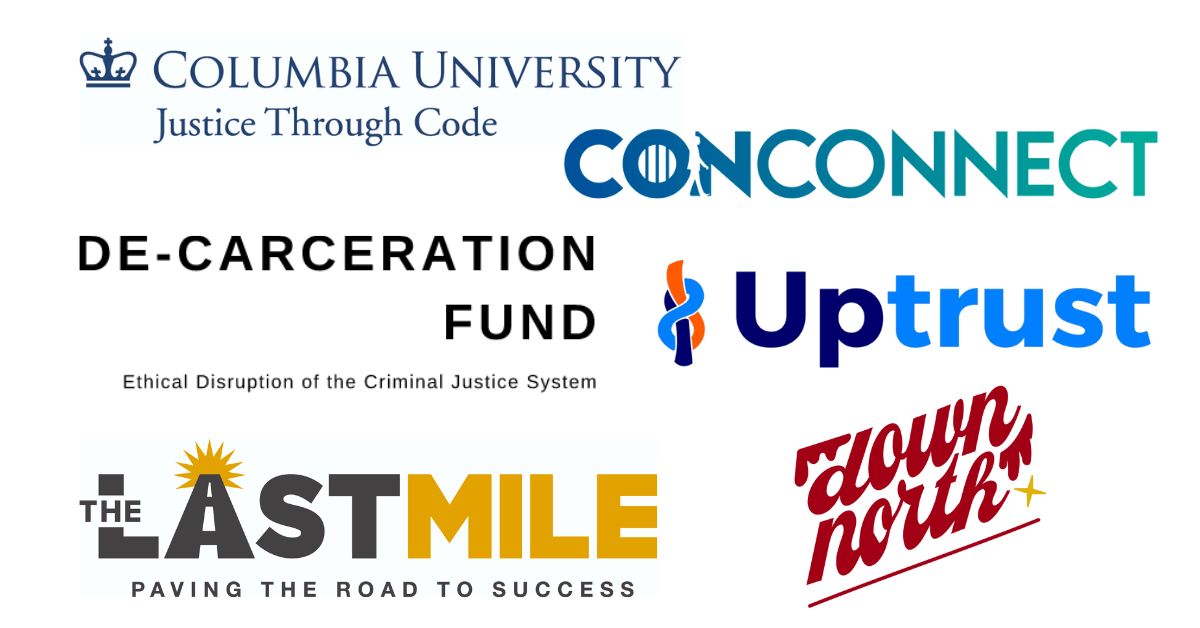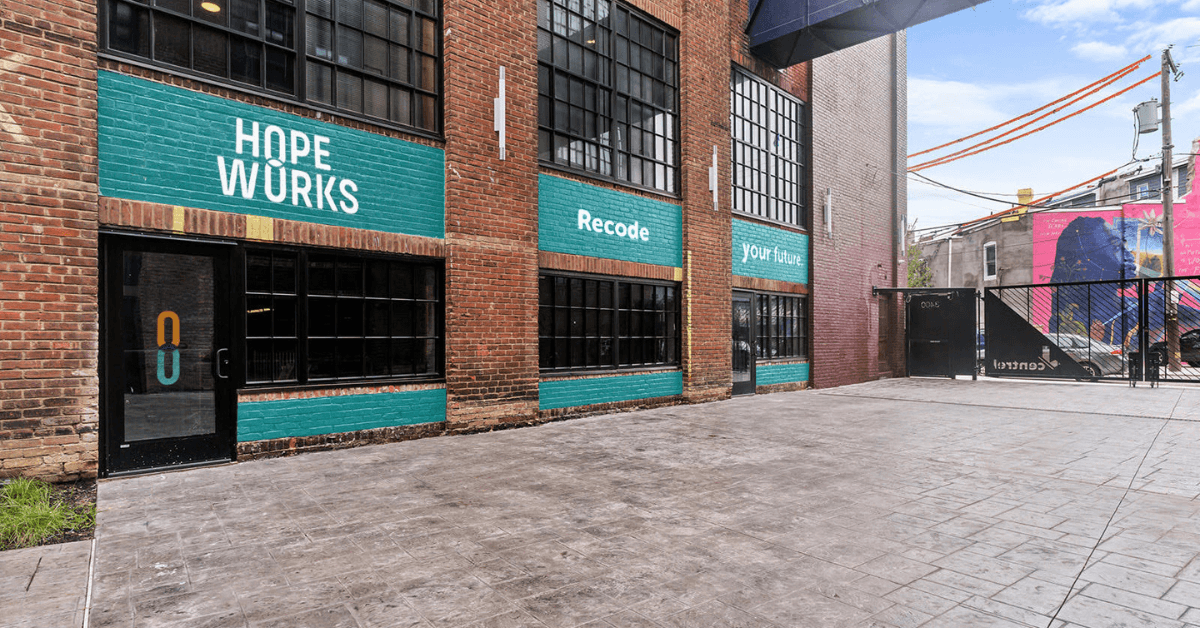KEY INSIGHTS:
- Lack of job training and high rates of unemployment for formerly incarcerated people contribute to the high rate of recidivism in the U.S.
- Justice Through Code and The Last Mile provide free web development curriculums and support returned citizens with finding employment, and startups Uptrust and ConConnect provide reentry support for formerly incarcerated people to reduce recidivism.
- Involvement in the criminal justice system reduces earnings for formerly incarcerated people with greater lifetime earnings losses for Black and Latino Americans, but upskilling through tech provides an avenue to higher wages.
Tech programs and platforms focusing on justice-impacted individuals are making leeway to reduce recidivism in the United States, which has the highest incarceration rate in the world.
Sixty-six percent of people released from state prisons in 2018 were rearrested within three years, according to a report by the U.S. Bureau of Justice Statistics. Reduced access to legal employment and sustainable wages has perpetuated the cycle of incarceration in which Black Americans represent 33 percent of the incarcerated population in the U.S., compared to 12 percent of the general population.
Tech programs are increasing employment opportunities
“In the system, there’s a real messaging that communicates the best you can hope for is a minimum wage job,” Aedan Macdonald, Director of Justice Through Code, who was formerly incarcerated, told The Plug.
Justice Through Code is a free full-stack web development program for formerly incarcerated individuals. The program, launched in 2020 and housed at Columbia University, has already served over 150 people.
The program has an 83 percent placement rate and graduates have been connected to partners like AWS and The Walt Disney Company. Justice Through Code participants have found roles as software engineers, project managers, data analysts and others roles that have led to an increase in earnings.
Justice Through Code graduates who have found employment have high retention rates. In fact, Macdonald said the fear of not being able to land a new role could keep them from exploring a beneficial career change.
“One of the interesting things that we’ve seen in this population is that tenure tends to be longer than somebody who does not have a history of incarceration. So I think for us, it’s actually been more for those students who finished in our pilot cohort prodding them to say, ‘Hey, maybe you should apply to another job or think about other companies,’” he said.
The average earnings of participants at the onset of the program are around $19,000 a year, increasing more than threefold nine months post-program to around $70,000.
When looking at lost learning potential, involvement in the criminal justice system reduces earnings by an average of 52 percent, with greater lifetime earnings losses for Black and Latino formerly incarcerated people.
In 2008, the unemployment rate for formerly incarcerated people was 27.3 percent, according to the Prison Policy Initiative, compared to 5.2 percent for the general population. Unemployment for formerly incarcerated people is highest in the first two years after returning to society. Returned citizens make 84 cents for every dollar of the U.S. median wage after seeking employment for four years post-release.
The tech industry is more receptive to hiring formerly incarcerated people, according to Syd Heller, executive director of The Last Mile, a business and technology training program for incarcerated people.
The organization has served over 1,000 students across seven states with a zero percent recidivism rate for graduates. The employment rate for alumni within six months of release is about 85 percent and graduates have landed software engineering roles at companies like Slack, Dropbox and Cash App.
The Last Mile works with partner organizations to help them create apprenticeships within their companies. It also has its own internal eight-month apprenticeship program for alumni. The Last Miles apprenticeship program is meant to be a “springboard” into apprentices’ careers and a way for graduates to contribute to the curriculum, Heller said.
“It ensures that as an organization, we have that direct feedback loop from people in our community, from people who are in our classroom,” Heller told The Plug. Apprentices receive professional development, mentorship and support in finding their next job.
Although many companies say they do not discriminate against those formerly incarcerated, many people still face employment barriers due to stigma. In Philadelphia, Down North Pizza, a Black-owned restaurant, solely employs formerly incarcerated individuals and provides employees with resources like transportation and housing in two apartments above the restaurant.
“That’s something that was ingrained in our culture and in the fabric of the company,” Down North founder Muhammad Abdul-Hadi told The Plug. Since opening in 2020 all employees are still working at the establishment.
Abdul-Hadi is also thinking about how tech can support his local community. He is building a foundation as an extension of the restaurant which will include a youth tech center. Plans are to build the center by 2025, two blocks from the restaurant, to teach children tech skills to increase their access to sustainable employment, particularly for people who cannot pursue higher education.
Platforms providing tech solutions and funding
Another innovative approach to reducing recidivism is tech platforms directly supporting formerly incarcerated people. ConConnect, a case management tool for organizations that provide reentry services, is also a professional networking platform for formerly incarcerated people.
“I was always on LinkedIn networking and just figured I need to make this app all over again exclusively for people like me to find the resources and networks catered to us,” ConConnect Founder Andre Peart told The Plug. He developed the platform in 2020 after serving five years in prison and struggling with reentry.
The company, which is backed by Techstars and Cox Communications, has had over 15,000 users and connected over 1,100 to jobs and services. Peart recently participated in a live pitch competition at the Philadelphia Alliance for Capital and Technology’s annual Capital Conference to close the company’s pre-seed round. Philly investors David Adelman and Ira Lubert invested $100,000 each in ConConnect which has raised a total of $1.1 million this year.
ConConnect has also received funding from the De-Carceration Fund (DCF), which launched in March 2022, and invests in and supports innovative enterprises working to alleviate the suffering caused by the U.S. criminal justice system.
“DCF invests at the seed and pre-seed stage meaning typically we are the first institutional investor; however, companies may have already raised from angel investors,” Principal Lawrence Williams told The Plug.
In addition to ConConnect, the fund has a second Black-founded startup in its portfolio — Uptrust, a communication platform that helps justice-involved people exit the criminal justice system. DCF plans to make two additional investments before the end of Q1 2023 and provides an average check size of $250,000 to $300,000.
Uptrust closed a $2 million seed financing round with funding with investment from Luminate, and Stand Together Ventures Lab in addition to the De-Carceration Fund.
Uptrust’s app connects clients to their public defenders or probation officers to avoid technical violations and has been used by over 500,000 individuals nationwide. According to the platform, users have a 50 percent reduction in failure-to-appear-to-court dates, saving $8 million in tax dollars.
“We started Uptrust to focus on a particularly avoidable and egregious pain point in the criminal justice system: missed court dates that result in hundreds of thousands of people going to jail each year,” Jacob Sills, Uptrust CEO and co-founder, said in a press release.
“As we have grown, we’ve seen that there are countless other types of preventable technical violations that ultimately cost local governments over $10 billion per year, with even more devastating costs for people and their families,” he said.
The future of upskilling and support for the formerly incarcerated
Although the tech industry is more open to hiring formerly incarcerated people, considering the recent onslaught of layoffs, there is a concern that formerly incarcerated people would be the first group companies would cut, Director of Justice Through Code Macdonald said.
But Macdonald believes Justice Through Code partners will not backtrack from their commitments to hire and retain formerly incarcerated employees. “My concern is more that it slows the pace of progress in getting other companies to hire from this population,” he said.
A central pillar of Justice Through Code is its mentorship program, where students are paired with mid-to-senior career software engineers and other professionals.
“As people are thinking about how to address this, I think that just our personal time is often the most meaningful investment we can make,” Macdonald said. “It’s impossible to change the tech industry overnight or to change our entire society, but it’s not that hard to change one person’s life,” he said.
Although a large component of The Last Mile curriculum is web development, the goal of the program is to provide resources for returned citizens to effectively use tech across different industries. The organization is also planning to explore a curriculum focusing on digital literacy. The goal: to prepare for reentry, especially for those who were incarcerated before the technologization of society.
“I would really like to see other programs in the prison space and departments of corrections increase the exposure to technology. Technology has become necessary in the modern world and a lot of people coming out of prison are at such a big disadvantage without comfort and proficiency with using cell phones, computers and the internet,” Executive Director of The Last Mile Heller said.








